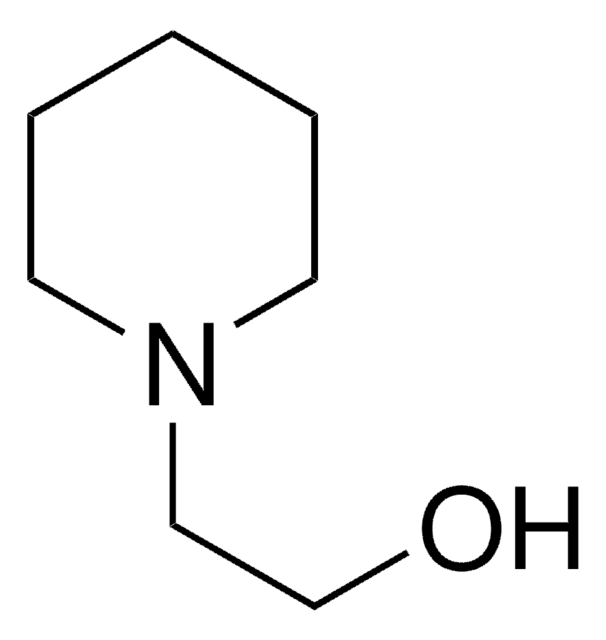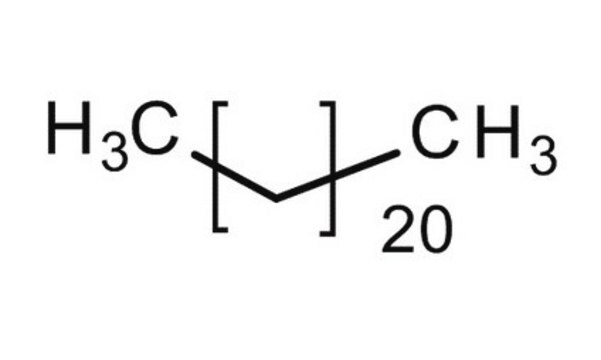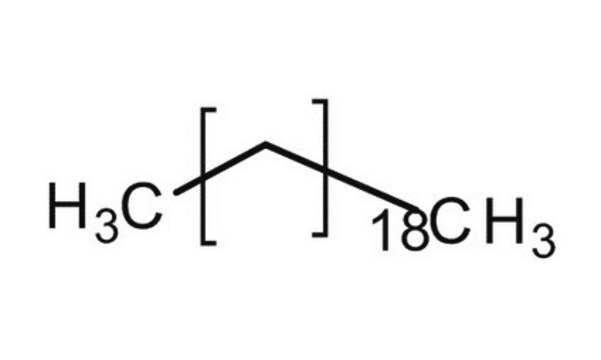About This Item
Recommended Products
vapor density
10.8 (vs air)
Quality Level
vapor pressure
<1 mmHg ( 21.1 °C)
Assay
99%
form
solid
bp
369 °C (lit.)
mp
42-45 °C (lit.)
density
0.778 g/mL at 25 °C (lit.)
SMILES string
CCCCCCCCCCCCCCCCCCCCCC
InChI
1S/C22H46/c1-3-5-7-9-11-13-15-17-19-21-22-20-18-16-14-12-10-8-6-4-2/h3-22H2,1-2H3
InChI key
HOWGUJZVBDQJKV-UHFFFAOYSA-N
Looking for similar products? Visit Product Comparison Guide
Related Categories
Application
Storage Class Code
11 - Combustible Solids
WGK
WGK 3
Flash Point(F)
235.4 °F - closed cup
Flash Point(C)
113 °C - closed cup
Personal Protective Equipment
Choose from one of the most recent versions:
Certificates of Analysis (COA)
Don't see the Right Version?
If you require a particular version, you can look up a specific certificate by the Lot or Batch number.
Already Own This Product?
Find documentation for the products that you have recently purchased in the Document Library.
Customers Also Viewed
Protocols
Separation of Decane; Dodecane; Tetradecane; Hexadecane; Octadecane; Eicosane; Docosane; Tetracosane; Hexacosane; Octacosane
Our team of scientists has experience in all areas of research including Life Science, Material Science, Chemical Synthesis, Chromatography, Analytical and many others.
Contact Technical Service












